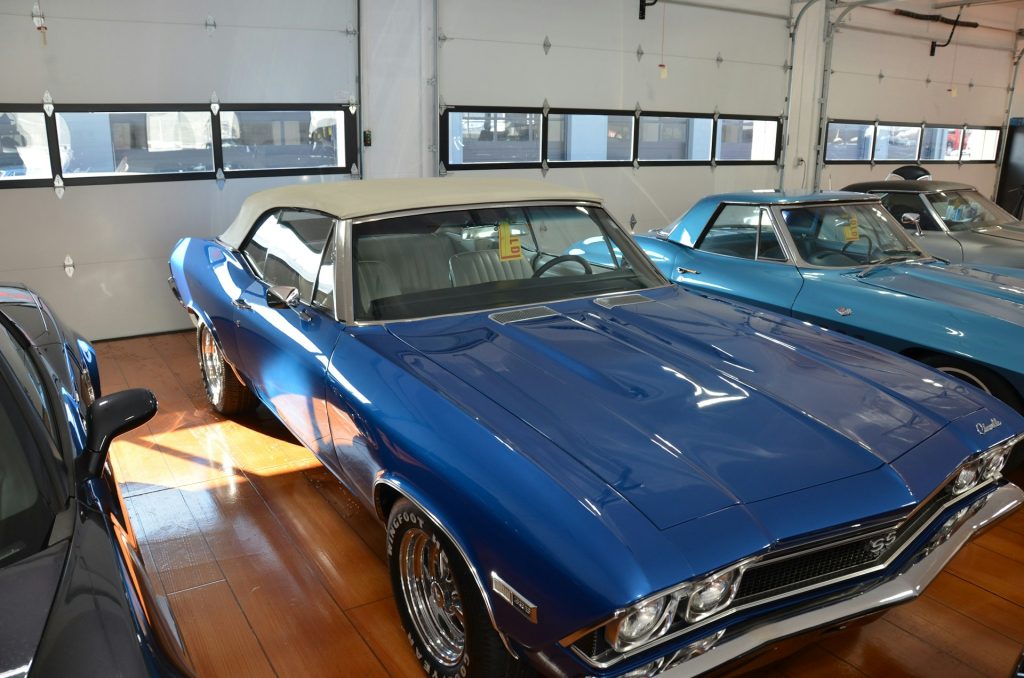Navigating the world of car auctions can be an exciting experience. For those who don’t know how to buy a car at auction without a dealer license, understanding the nuances of auto auctions is crucial. This comprehensive guide will enlighten you on how to confidently purchase vehicles at auctions, providing insights into the process, types of auctions, and essential tips for success. Distinguishing between a public car auction and a dealer auction is key. Dealer auctions are typically restricted to licensed dealers and offer a different inventory, often including newer or lease-return vehicles. In contrast, car auctions open to the public provide a broader range of vehicles, from luxury cars to everyday models, making them ideal for personal buyers. Familiarizing yourself with the specific procedures and rules of each type of auction will enhance your chances of securing the car you desire at a competitive price.
Table of Content
- What Is an Auto Auction?
- Types of Car Auctions
- Things You Should Know When Buying Cars at Auction
- Understand How to Bid
- Is Buying a Car from an Auction a Good Idea?
- FAQ
What Is an Auto Auction?
An auto auction is a platform where cars are sold to the highest bidder. It differs from traditional car sales, offering a diverse range of vehicles, from nearly-new models to well-loved cars. Auto auctions are a magnet for various buyers, including private individuals, used car dealers, and even car enthusiasts. These auctions provide an opportunity to buy cars at potentially lower prices, making them a popular choice for those looking to save money. Most auctions reveal the history of a vehicle, including details about previous owners, allowing buyers to make informed decisions. Whether you’re in the market for a new car, a few cars for your business, or a used vehicle for personal use, auto auctions offer different choices, catering to various needs and budgets.
Types of Car Auctions

Car auctions come in multiple forms, each with unique characteristics. Public car auctions are open to the public and offer a wide variety of vehicles. Dealer auctions, on the other hand, are exclusively for licensed dealers. Interestingly, online auctions are becoming increasingly popular, offering convenience and accessibility. Online auto auction platforms connect buyers directly with an auction house, eliminating geographical barriers. A Better Bid auction requires no dealer’s license, making it an attractive option for individual buyers. However, those interested in dealer auctions must have a dealer’s or business license to participate. Whether you’re a seasoned buyer or new to the scene, online auctions and dealer auctions provide distinct opportunities to acquire vehicles.
Navigating car auctions without a dealer license primarily involves focusing on public auction events, as dealer auctions and dealer-only auctions are restricted to licensed professionals. Understanding how car auctions work is crucial for success in this arena. Public auctions offer a level playing field where individual buyers can compete alongside other dealers. Key to this process is the vehicle identification number (VIN), which allows potential buyers to research a car’s history in detail. Unlike purchasing from a dealership, buying at a public auction requires a keen eye and quick decision-making skills. This environment provides a unique opportunity to acquire vehicles that might not be readily available at a traditional dealership, often at competitive prices.
Things You Should Know When Buying Cars at Auction

Starting the journey of buying cars at auction requires a solid understanding of the process. Knowing the vehicle history, understanding the terms of the sale, and being aware of the vehicle’s condition are crucial. Research is key to making an informed decision and getting a good deal. Vehicle history reports are invaluable tools for public buyers, offering insights into past accidents or a salvage title, which can significantly affect a car’s value. When eyeing used cars at a car auction, it’s essential to plan and rate each potential purchase. Thorough research helps in uncovering hidden issues and assessing the true worth of a vehicle, ensuring you make a savvy investment at the auction.
Expanding your knowledge on how to sell and manage money effectively is equally important when participating in a public car auction. Setting a realistic price for used vehicles you’re interested in is a fundamental aspect. As a buyer, it’s vital to have a clear understanding of the maximum amount you’re willing to pay, including any additional fees associated with the purchase. In public car auctions, the dynamics of selling and buying differ significantly from traditional methods. Here, the final price is determined through competitive bidding rather than fixed pricing, making it crucial for buyers to remain alert and decisive. Having the necessary funds ready ensures a smooth transaction process, allowing you to secure a vehicle without the complexities of dealership procedures.
Understand How to Bid
Bidding at an auction is an art. It involves understanding the auctioneer’s pace, recognizing the competition, and knowing when to bid. Setting a budget and sticking to it is vital to avoid overspending. Remember, bidding is a commitment to purchase, so bid wisely. At public auctions, participants often need to pay in cash, making financial planning crucial. Each auction has its own set of rules and requirements; hence, it’s important to gain access to this information beforehand. Prospective buyers must register to participate, a process that sometimes includes a deposit or registration fee. When you successfully bid and win, be prepared to settle the payment quickly, as auction houses usually require prompt payment post-sale. This fast-paced environment is exhilarating, but being prepared and understanding the process is key to successfully buying and selling in this unique marketplace.
Speaking of online auctions, the process is quite simple. For example, to start bidding on A Better Bid online auction, you only need to register, choose your membership type, and place a refundable security deposit. Once you complete the quick registration process, all that’s left to do is search the cars for sale and place your bids.
Is Buying a Car from an Auction a Good Idea?
Purchasing a car from an auction can be a smart choice. Auctions often offer cars at lower prices compared to traditional dealerships. However, it comes with risks like limited warranties and no test drives. Weighing the pros and cons is essential before diving in. The seller sets a base price, which can escalate based on demand. The auctioneer plays an important role in driving up the price, creating a dynamic and competitive atmosphere. Public car auctions offer a variety of vehicles, often at more affordable prices than dealer auctions. Additionally, government agencies frequently sell their fleet vehicles at auctions, providing another avenue for buyers. Astute buyers can turn a tidy profit by reselling these vehicles, especially if they acquire them at a significantly lower price than the market value.
Buying a car at auction without a dealer license opens up a world of possibilities, allowing you to explore a range of options, from a nearly-new car to a more budget-friendly used vehicle. This approach eliminates the need for a middleman, potentially leading to significant savings. While the thrill of bidding for a new car or a used vehicle is undeniable, it’s essential to navigate these auctions with a strategic approach. Without a license, your focus should be on auctions that don’t restrict entry to licensed dealers. This means paying close attention to the terms and conditions of each auction, understanding the fees involved, and knowing your rights and responsibilities as a buyer. With the right preparation and knowledge, purchasing a car at an auction can be both a financially savvy and satisfying experience.
![]() FAQ
FAQ
Show more
Why Are Newer Cars Sold at a Car Auction?
Newer cars often end up at auctions due to overstock, lease returns, or repossessions. Auctions provide a quick way for sellers to unload these vehicles. Additionally, financial institutions might auction cars to recoup losses on defaulted loans. Manufacturers and rental companies also use auctions as a rapid channel to sell off excess inventory or retired fleet cars, ensuring a constant refresh of their stock.
Why Are Auction Cars So Cheap?
Cars at auctions are generally cheaper due to the nature of the sale – it’s a fast-paced environment where sellers aim to move vehicles quickly, often at wholesale prices. The auction format can lead to lower final prices due to competition among buyers. Many vehicles at auctions may also have higher mileage, previous damage, or require repairs, contributing to their lower pricing.
Can Low-Mileage Cars Be Sold at Auto Auctions?
Absolutely! Auto auctions feature a range of cars, including low-mileage ones, which might be there due to various reasons like repossessions or fleet renewals. Often, vehicles from companies or rental services are sold after a short period of use, ensuring they maintain low mileage. These cars are particularly appealing at auctions, as they offer a combination of recent model years and lower usage.
Recommended Articles
:format(webp)/vulcan.abetter.bid%2Fwp-content%2Fuploads%2F2023%2F11%2Fkahl-orr-MPdl02hySb0-unsplash.jpg)
Best Used Luxury Cars
:format(webp)/vulcan.abetter.bid%2Fwp-content%2Fuploads%2F2022%2F09%2Feren-goldman-mfqj3ZSs_h0-unsplash.jpg)

:format(webp)/vulcan.abetter.bid%2Fwp-content%2Fuploads%2F2024%2F01%2Fartem-beliaikin-pWe4gf7jajg-unsplash.jpg)
:format(webp)/vulcan.abetter.bid%2Fwp-content%2Fuploads%2F2022%2F10%2F2022-10-05-11.30.40-150x150.jpg)
 FAQ
FAQ :format(webp)/vulcan.abetter.bid%2Fwp-content%2Fuploads%2F2023%2F10%2Fnik-H3lP2i17Gpc-unsplash.jpg)
:format(webp)/vulcan.abetter.bid%2Fwp-content%2Fuploads%2F2025%2F11%2Fa-better-bid-vs-autobidmaster.png)
:format(webp)/vulcan.abetter.bid%2Fwp-content%2Fuploads%2F2025%2F10%2Fcopart-vs-a-better-bid.png)
:format(webp)/vulcan.abetter.bid%2Fwp-content%2Fuploads%2F2025%2F10%2Fcopart-vs-iaai-1.png)

